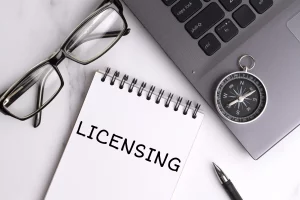How to Start a Small Business?
Are you someone with a fantastic business idea, and you cannot wait to implement them? Starting a small business can be an exciting and rewarding experience, but it also comes with a lot of responsibility.
There are several things to consider before starting a small business, from the initial planning stages to the day-to-day operations. This guide will explain the steps to start a small business.
Steps to start a small business
Before you start
Before taking the plunge, you must check that you’re ready. The process of starting your own business is quite a complicated one that takes a lot of time, effort and commitment. You will need to make sure you are aware of everything that the process entails and that you scrutinise your idea to make sure it is a viable one. It is essential to do your research, which brings us to the first step in getting your business up and running.
-
Do your research

It is essential to do your research before taking the plunge. One of the most critical aspects of research is understanding your business’s target audience. Who are you selling your product or to? What is the demand for your product or service?
These questions will help you determine whether your business has a market. Who are they, and what are they offering? How can you set yourself apart from the competition?
You will also need to determine the type of business structure that will suit your business best. The business structure will have effects on tax, paperwork and finances, so it is essential that you choose the right one. If you are unsure, consult with an expert, as they will be able to guide you in the right direction.
You have probably heard the old adage ‘Location, Location, Location’ when it comes to business, and this is particularly relevant to starting a small business. The location of your business can relate to making sure you choose an appropriate physical location, but also to the placement of your business online and in relation to your customers. Research your target market to determine how your ideal customer would access your product or service.
-
Write a business plan.

An essential step to starting a business is to have a business plan. It’s a roadmap that outlines your business goals, strategies, and how you plan on achieving them.
A business plan is valuable for communicating your business idea to potential investors, customers, and employees.
Without a business plan, it’s easy to get lost in the day-to-day operations of your business and forget about your long-term goals. A business plan can help you stay organised and on track as you grow your business.
A business plan is a critical step in starting your own business – it lays out your goals, strategies, and how you plan on achieving them.
It can also help you secure funding from investors or lenders. But many people don’t realise that a business plan can also be a valuable tool for making you more money.
By clearly defining your goals and strategies, a business plan forces you to think about how you will achieve them. It also forces you to research your market and understand your competition while determining who is your business target audience.
As a result, you are more likely to make informed decisions that lead to increased profits.
Along with your business plan, you will want to create a risk management plan, which can help reduce the impact of unexpected events on the operation of your business. You will also want to develop a detailed marketing plan.
Starting and running a business takes time and energy, so why not leave some of it to the professionals? Let the team at First Page help you develop a marketing plan to put your business front and centre to your target customers. Contact us today to find out more about how we can help you.
-
Name your business

When starting a business, choosing its name is one of its most essential branding elements. It can influence everything from customer perception to search engine optimisation (SEO).
Choosing a name is not an easy task, but it is crucial to take the time to do it right. The perfect business name should be unique, easy to remember, and reflective of not only what products or services the business offers but also its brand and values. It should also be available as a domain name for a website and be able to be registered as a trademark.
Once you’ve chosen the perfect name for your business, protect it by registering it as a trademark.
This will give you the legal right to use it exclusively. You should also consider registering relevant domain names so no one else can use them. And finally, don’t forget about social media – make sure yo u claim appropriate handles on platforms like Twitter, Facebook, and Instagram to build a solid online presence for your business.
-
Secure funds for your business

Starting a small business is no easy task, and there are many things to consider, like your business cost. To cover the business’ costs, one popular option for businesses is to take out a loan. Business loans can be used for a variety of purposes, from covering start-up costs to funding expansion plans.
However, it’s important to remember that taking out a loan is a significant financial commitment. Therefore, you’ll need to carefully consider the terms of the loan and make sure you can afford the monthly payments before signing on the dotted line.
Another option for funding your business is to seek investment from venture capitalists or angel investors.
This can be a great way to get the funds you need without going into debt. However, it’s important to remember that investors will want to see a return on their investment, so you’ll need to have a solid plan for how you’ll use the funds to grow the business.
-
Get a business licence and permit

When starting a small business, it’s essential to ensure that you have all the necessary permits and licences in place. This is not only a legal requirement but also helps to ensure that your business operates within the bounds of the regulation. Obtaining a permit or license can be a complex process, but it’s essential for the long-term success of your small business.
Various permits and licences are required depending on the type of business. For example, if you’re running a construction business, you’ll need a contractor’s licence. The best way to determine the required permits and licences is to speak with your local Chamber of Commerce or Small Business Development Centre.
While obtaining all the necessary permits and licenses may seem like a hassle, it’s important to remember that this is an essential part of running a small business.
Bring your business to the next level.
If you want to grow and reach more of your business’s target audience, digital marketing is worth considering.
At First Page, we have a variety of digital marketing services that include social media marketing, SEO, and paid Google advertising. We have the tools to bring your business to the next level and help you achieve your business goals.














